Animal cafe, it's so cruel! Is it legal to open a cat cafe?
Professional coffee knowledge exchange More coffee bean information Please pay attention to coffee workshop (Weixin Official Accounts cafe_style)
More fine coffee beans, please add private WeChat Qianjie Coffee, WeChat: qjcoffeex
As early as the 1980s, the concept of cat eating tea shop appeared in Japanese comic book "Cat Crazy". The idea of various cat breeds as window models attracted many cat lovers to enjoy cats while drinking coffee, so it was regarded as the original idea of cat cafes.
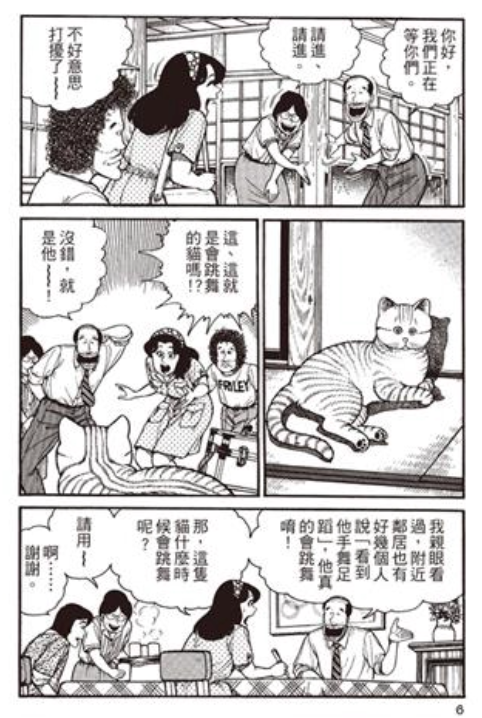
In 1998, a manager in China Taiwan moved cartoons to reality and opened the first cat cafe in Taipei, which is also the first cat cafe in the world. The original intention of the cat cafe was that the owner saw that many stray cats were homeless and that the family could not accommodate so many cats.
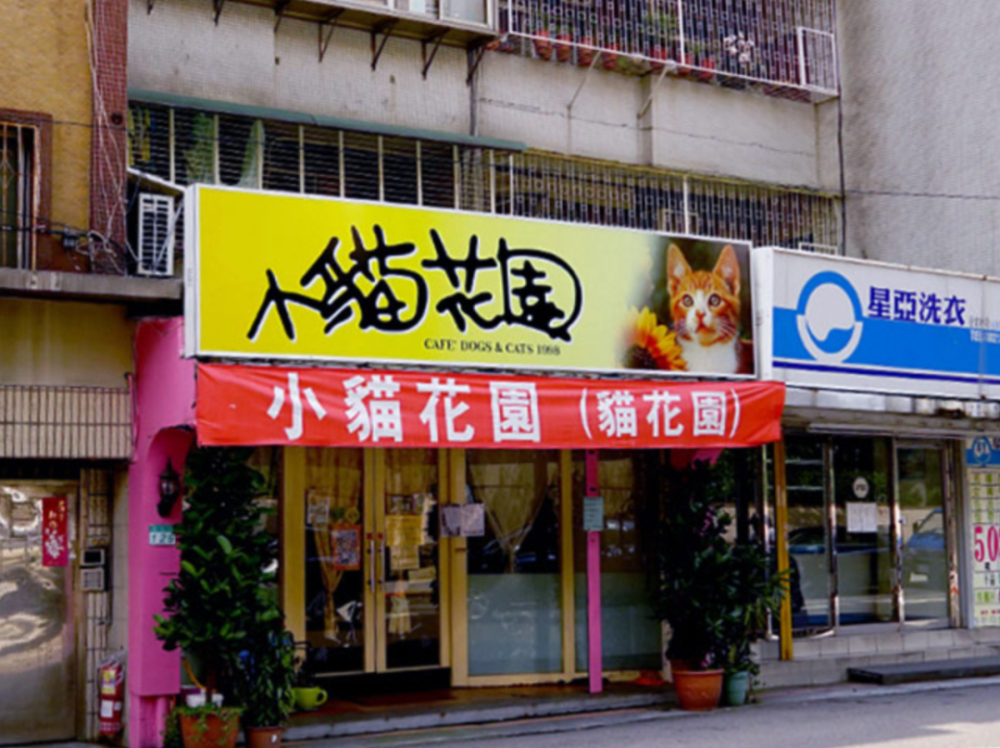
So I opened a coffee shop and kept cats in the shop. On the one hand, it can give these cats a more stable residence, and the consumption of a guest can also reduce the pressure of breeding.
Kittens are always furry and soft to the touch, and purrs are always healing and warm to people. However, due to environmental reasons, it is impossible to raise kittens, but there is a great need for kittens to heal, so this cat cafe attracts a lot of people.
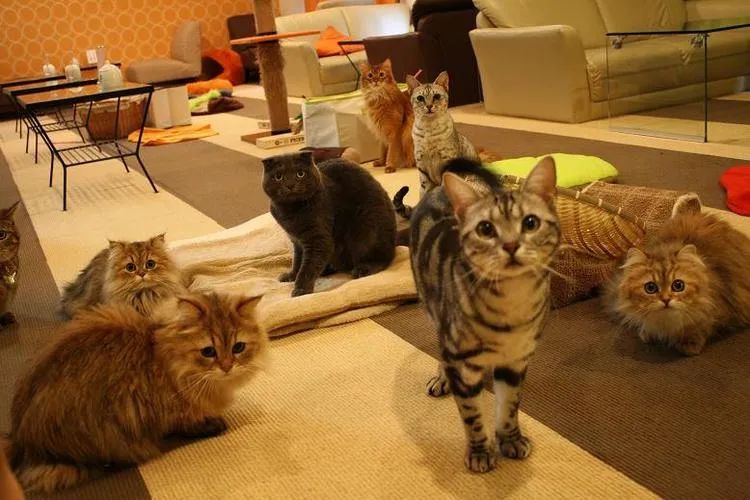
The concept of cat coffee shops and animal coffee shops quickly spread to other Asian countries. By 2010, a variety of animal cafes were popular in other countries. In addition to the regular brand of meow repair hook, there are Cole duck, small fragrant pig, small rabbit, small hedgehog, alpaca and so on...
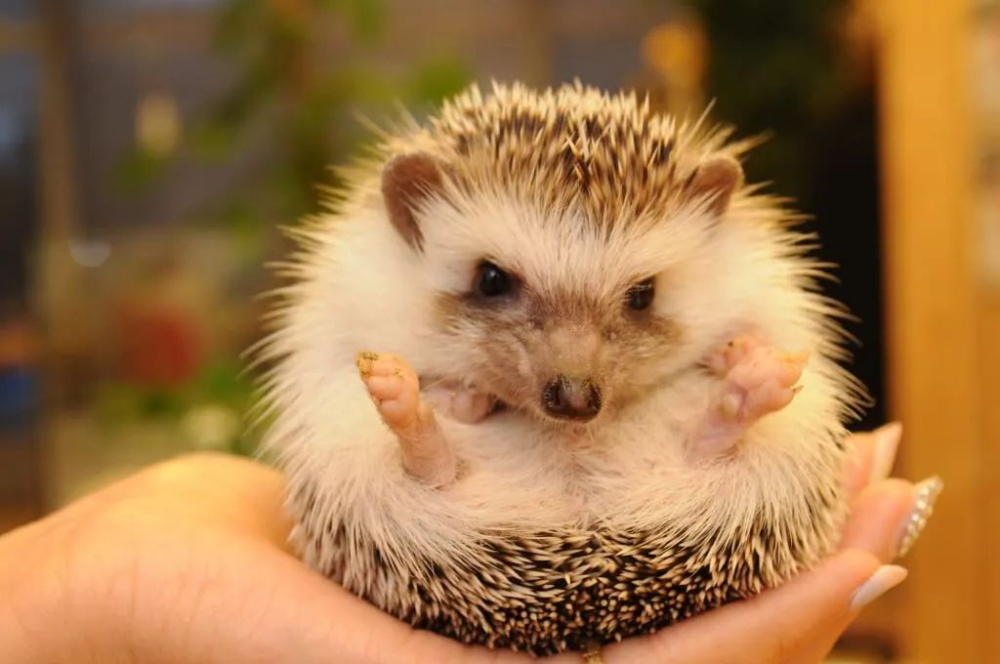
Some countries that do not have perfect laws on wildlife management are even more popular with captive wildlife of all kinds. Some wild animals have violated the Convention on International Trade in Endangered Species of Wild Fauna and Flora and are illegally obtained.
According to the Japan Times, a recent study found that about 60 percent of animal cafes in Japan contain exotic species restricted by international trade laws, raising concerns that their prevalence could not only threaten their protection but also increase the risk of animal transmission of diseases.
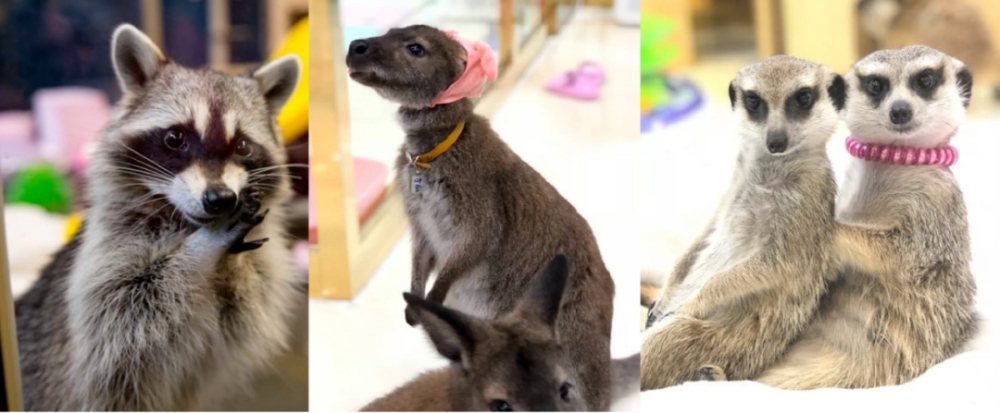
The cafes display 3,793 animals from 419 different species, 9 of which are banned from trade under the Convention on International Trade in Endangered Species of Wild Fauna and Flora (CITES) due to their endangered status. Among them are grey parrots and loris. There is also no record of trade in these animals in the CITES database.
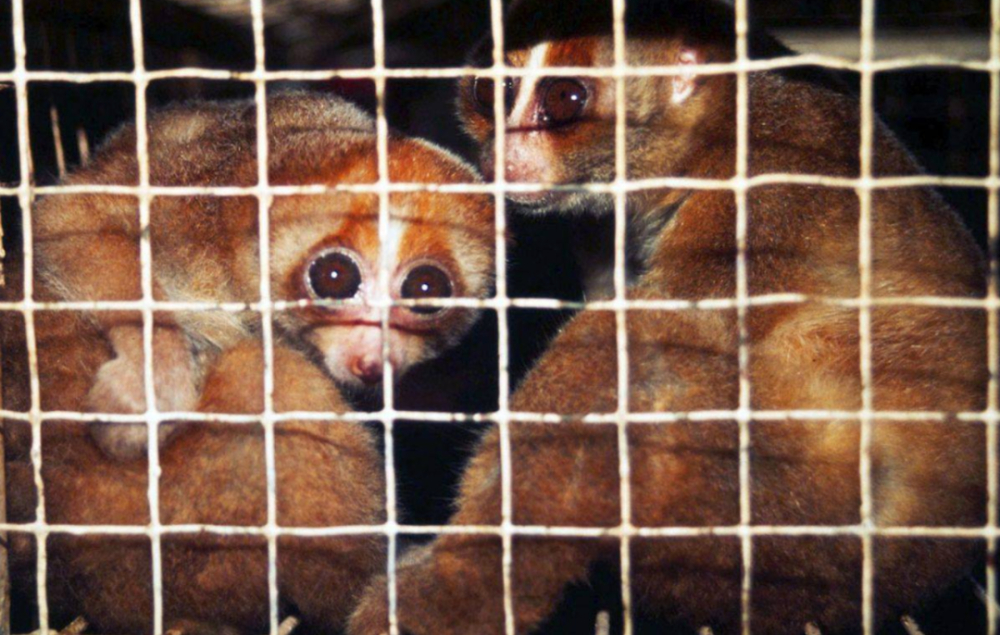
- slow loris
In terms of species, birds account for 62% of the total, of which owls account for 40%. Reptiles and mammals accounted for 21 per cent and 15 per cent, respectively, and amphibians for 2 per cent. The most common animal is the four-toed hedgehog, with 55 animal cafes in Japan and 245 people, followed by barn owls and northern white-faced owls, which require permission from the exporting country to be legally purchased.
But according to national trade records, not much wildlife is exported through legal channels. A recent seizure of endangered primates by Japanese customs has led to speculation that some of the animals in the cafe may have been smuggled from the illegal wildlife trade.
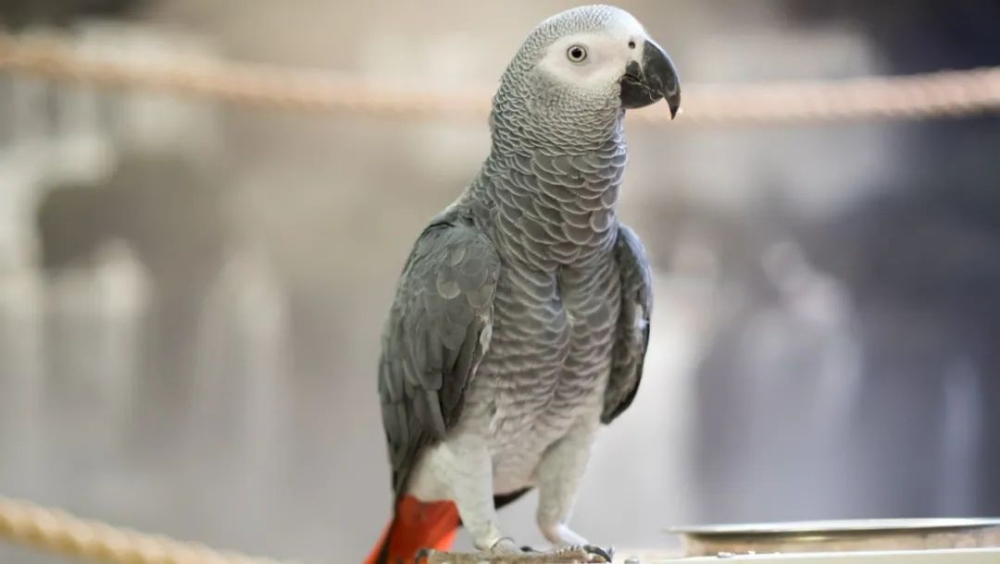
- grey parrot
In addition to Japan, wildlife cafes in Korea and Thailand are also very popular. In these places guests can see and touch a variety of small animals. But from an ecological point of view, such an indoor environment will have a great negative impact on the animals themselves...
Because of the limited space in which they live for a long time, there is very little room for movement and no shelter, so it is difficult for animals to escape from their pestering guests. Every day, they are also "ravaged" by all kinds of guests, and even sleep time is forced to "open". Many animals 'physical and mental health is seriously affected, such as obesity, malnutrition, lack of sleep, etc.
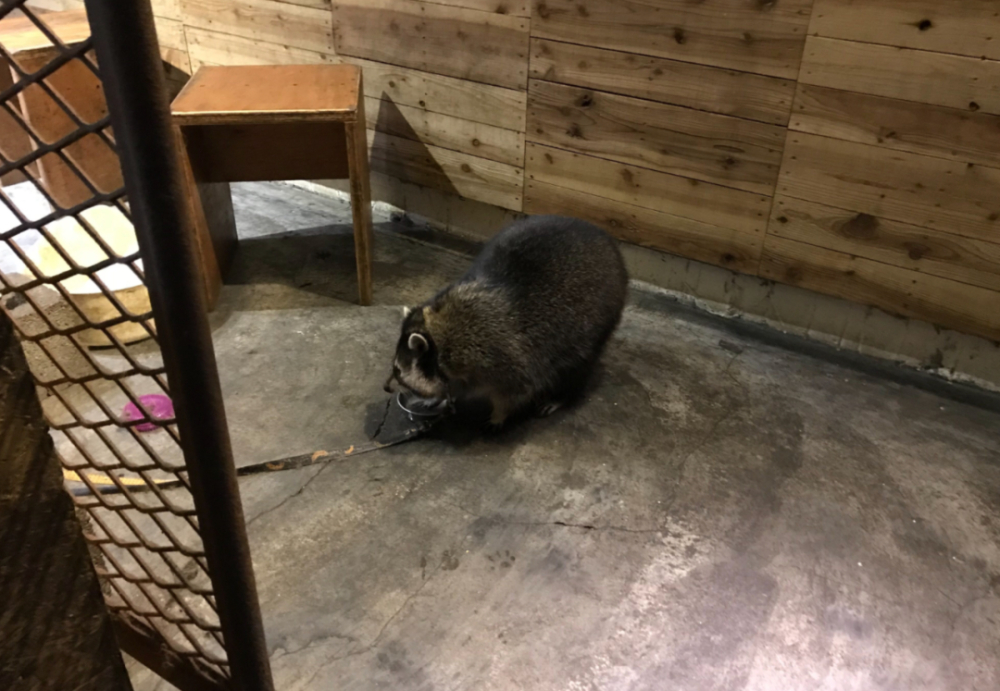
Some animals that originally lived in the wild, because they were suddenly captive and unable to move, most of them would have depression and irritable mood disorders, and would also make aggressive behaviors towards all people and things. But people attribute this phenomenon only to the nature of animals, and do not pay attention to the psychological state of animals themselves, only to satisfy their own curiosity and money-making heart.
With the increasing number of animal cafes, stray cats, stray dogs, and rare animals can be seen on the streets. Many Korean and Japanese netizens reported that raccoons and owls could also be seen in urban areas, which was an abnormal thing. The source was more pointing to various animal coffee shops.
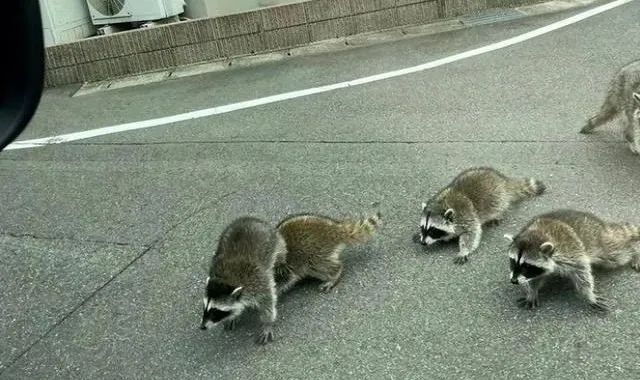
Netizens said that these animals themselves do not belong to coffee shops, which is undoubtedly an alternative animal abuse behavior to satisfy human desires and entertainment. When coffee shops close down, these animals will be abandoned by people to fend for themselves, and abnormal animals will also be abused to death.
This is not only not responsible for the animals themselves, but also for the ecological environment and health. These animals have different viruses and germs on them. If they scratch people, the consequences are unimaginable.
For this reason, in the past two years, organizations in Japan and South Korea have begun to sign online petitions urging the closure of all wild animals such as owls and strict management and regulations on coffee shops for common animals. At present, more than 300,000 signatures have been received.
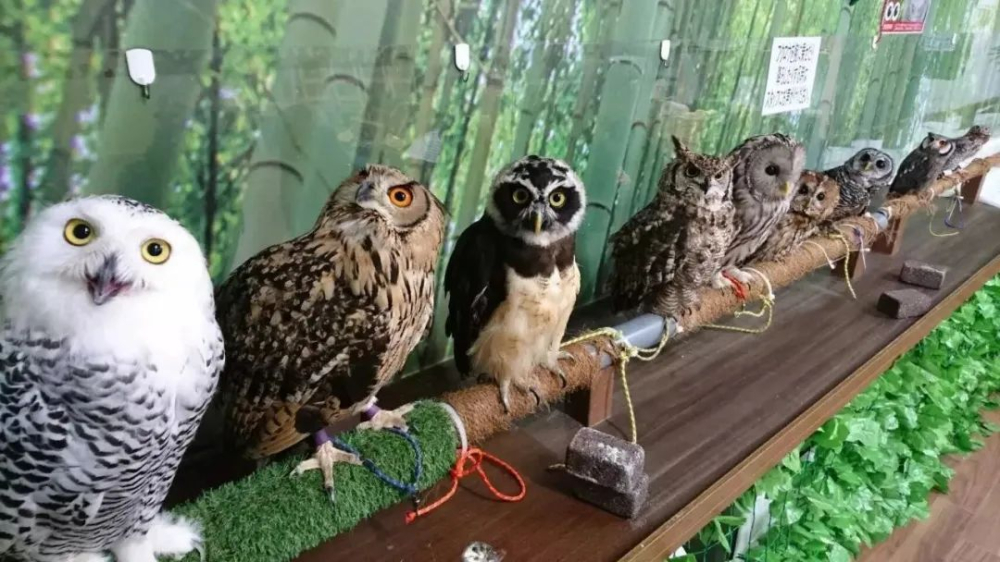
At the same time, relevant organizations in various countries and regions are also actively communicating with local zoos. If these cafes are closed, these wild animals can have a stable and safe residence.
Last year, South Korea's Ministry of Environment announced in January that in order to safeguard animal welfare (a principle that protects all animals, including farm animals, laboratory animals, companion animals, working animals, recreational animals and wild animals), it would completely ban the display of wild animals outside zoos, including private businesses such as wildlife cafes, which have become popular in South Korea in recent years.
If the bill is passed, the cafes will close after a grace period of three to four years and the animals will be sent to South Korea's national ecological parks, zoos and other places for protection.
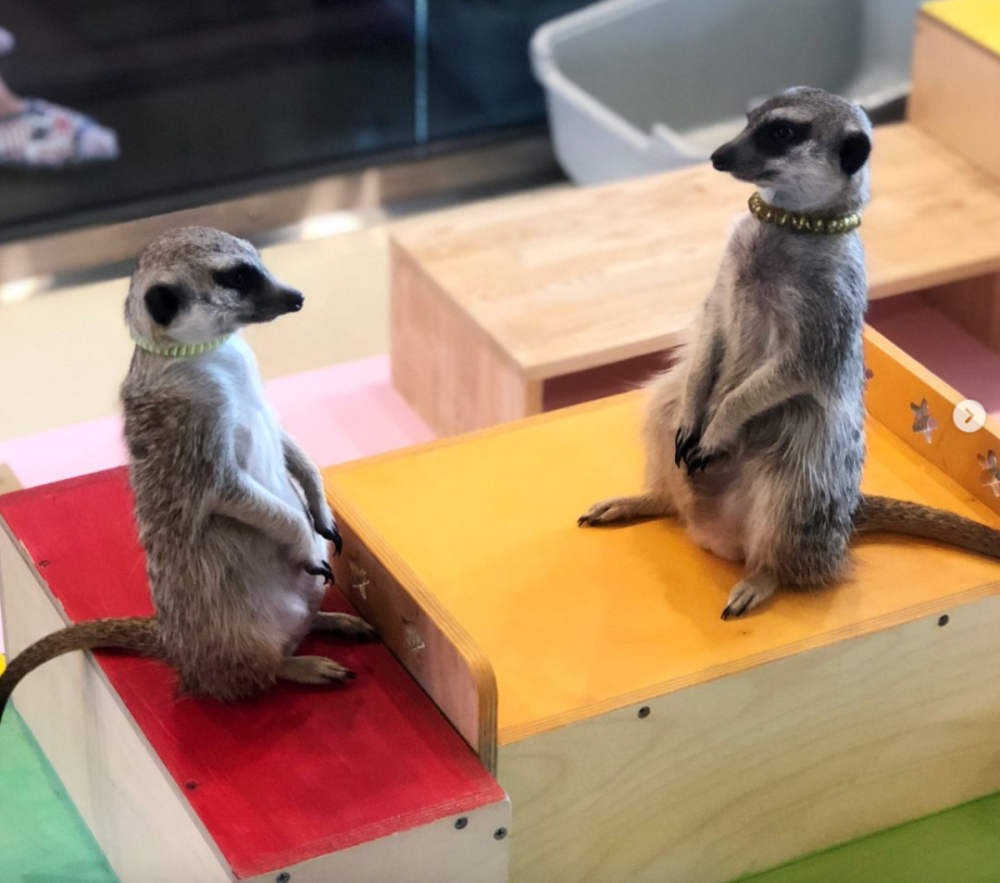
Until now, wildlife cafes in Japan have not received much attention from the government. Although whenever animal rights groups or ordinary people report misconduct to the government, authorities can go to coffee shops and investigate. But animal welfare standards are poor, and no matter how difficult the conditions are for animals, there is no improvement.
Apart from the operators themselves, consumers should also reflect on themselves. If not, where are these markets?
Image Source: Network
Important Notice :
前街咖啡 FrontStreet Coffee has moved to new addredd:
FrontStreet Coffee Address: 315,Donghua East Road,GuangZhou
Tel:020 38364473
- Prev

Coffee shop sends out a document for help "drive sedentary customers way" hot discussion!
Professional coffee knowledge exchange More coffee bean information Please pay attention to coffee workshop (Weixin Official Accounts cafe_style) More fine coffee beans Please add private WeChat Qianjie coffee, micro signal: qjcoffeex Korean students have many rolls? Those who watch Korean dramas should also know that whenever it comes to students,
- Next

I just want to buy a cup of coffee! Coffee shop menu can not be so complicated!
Would you like to buy a cup of coffee? Let's start with a quiz: "how many coffee products are there?" What's the difference between Americano and lungo? " I don't know if you have ever experienced such a scene: go into a coffee shop and ask for a cup of coffee, and then the clerk will recommend you a variety of roasting levels.
Related
- What is the difference between the water temperature and grinding of anaerobically treated coffee beans when brewed in the sun and washed in water? What is the reason why anaerobic single-product coffee comes into the water so quickly?
- What ratio parameters do Italian almond milk espresso make it best? What coffee beans are the best for classic espresso?
- Employees improperly destroy spokesperson cooperation materials! Cody apologizes urgently!
- Gather together?! Tea Beauty and Color South China stores settled in Nanshan, Shenzhen!
- What grinding ratio of water temperature does the Aiyue press coffee pot use to make coffee? World champion's all-powerful Aiyue pressed coffee extraction solution to share!
- What is the function of the espresso extraction pad filter paper? How to improve the uniformity of extraction when making Espresso?
- What is Sicilian coffee? Is it good to make lemon coffee with cold extract and hand hanging ears?
- Analysis of common problems in hand-brewed coffee extraction: Why does hand-brewed coffee separate from powder and water
- Workers collapse! Lucky suspects that it will introduce freshly cut fruits?!
- 1-point subsidy recipients wear thousand-yuan watches?! Local response: For low-income households

